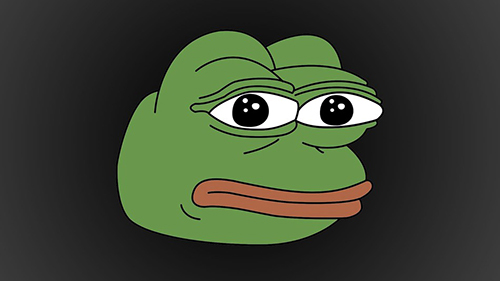If you’ve got something to say…
Every single person who uses the internet is vulnerable to cyberbullying, trolling and online abuse. Whether you are an Instagram extraordinaire, a fan of Twitter or a Snapchat pro – it could happen to anyone at any time and celebrities are far from immune. In fact, it seems as though the more followers you have, the more likely you are to be trolled.
Where social media, on the one hand, gives us the opportunity to voice our opinions on anything from politics to pan frying a sea bass, it also gives people with a nasty agenda a chance to voice hateful thoughts and ideologies. It goes without saying that in providing a wonderful platform for people to publicly spread cat videos and hilarious memes, (👍🏽) also comes the opportunity to spread hate speech (👎🏽). This can be incredibly dangerous, hurtful and distressing for those on the receiving end and anyone else who’s viewing it.
So, What is Hate Speech?
Hate speech is when somebody says, writes or shares something which attacks a person or group of people on the basis of their race, religion, ethnicity, sexual orientation, disability, or gender. Much like hate crime, it specifically targets people who are of a certain group. For example, if you’re being directly messaged by someone who is saying nasty things about your appearance or hobbies but not specifically about your race/religion/sexuality or ability – that’s not considered hate speech, it comes under the umbrella of bullying or online abuse.
Unfortunately, in today’s political climate, hate speech is not uncommon. all too often we’re seeing people spouting some rather questionable views very publicly online or purposely targetting individuals who don’t conform to specific expectations or views. Nobody deserves to be targeted in this way – the internet is a space for everyone and nobody or group of people should feel marginalised, intimidated or isolated. If you’re being targetted with hate speech, always remember that it is never a problem with you, the problem always lies with the perpetrator.
What does the Law say?
Well, it’s a bit of a grey area, different countries and regions have different stances on the illegality of hate speech. In the UK for example, it’s an offence to incite hatred based on a person’s race, religion, sexuality or disability. It is not, however, an offence to stir up hate about a person’s gender or identity (something which really needs to be addressed because unfortunately, hate speech towards women and misogynistic language used online is prolific and increasingly violent.)
Where does it happen?
Hate speech takes place both on and offline – it’s easy to get away with saying something hateful to a person’s face because unless that person reports it – who’s gonna know, right? (that doesn’t make it OK, btw). Hate speech online, however, is far more public so naturally, you’d think it could be policed better than it currently is.
New technologies emerge all the time that attempt to quell the tide of horrible words that come flooding in online. Many networks have a reporting system and some are even monitored, but it’s simply not enough to keep up the ever-changing nature of language and online behaviour.
Example: You might be familiar with Pepe The Frog. A seemingly benign meme which was co-opted by hate groups and other individuals in 2016. Pepe the Frog soon came to be seen as a symbol of racism and anti-semitism across various online spaces. There has also been a murmur of suspicion to suggest some hate groups use specific emojis to symbolise their ideologies online making it notoriously diffuclt to police. In any case, communications which target specific individuals or groups in people in hateful ways, come under the umbrella of hate crime – Hate crime is illegal.
What about Celebrities?
There have, of course, been several high profile cases of online hate speech – Michelle Obama springs to mind. The former American First Lady received endless online abuse throughout her husband’s presidency; some of it personal, some of it targeting her race, her religion and her nationality. It was ruthless but one thing’s for sure, the people trolling her would probably never have said it to her face. Celebrities and those with large social followings are often in the firing line for hate speech and some have spoken out about it. Others say that it comes with the territory of being very active on social media.
Whatever your view, no one deserves to be on the receiving end of hate speech, online abuse or trolling of any kind – if you see it, report it. If you’re experiencing online abuse, read this for more information on what to do.
Don’t be a Bystander…
Is it ok to troll a ‘troll’?
The answer is no. If you see someone sharing hate speech online, don’t engage – by opening up a discussion with them you give them a platform to incite more hatred. By trolling them back you’re reciprocating their behaviour. The best way to deal with someone who is being nasty online is to disengage and report. Again, if that person is sharing hate speech, report it. Here’s some more info on reporting online abuse or hate speech. If you see something, report it.
Click on the images below to find out specific information on reporting online abuse and hate speech on social networks:
Want to talk it through first?
If you’re being targeted, talk to a DTL digital mentor for more specific advice and help on what to do next – Join the community today, we’re here for you.


















